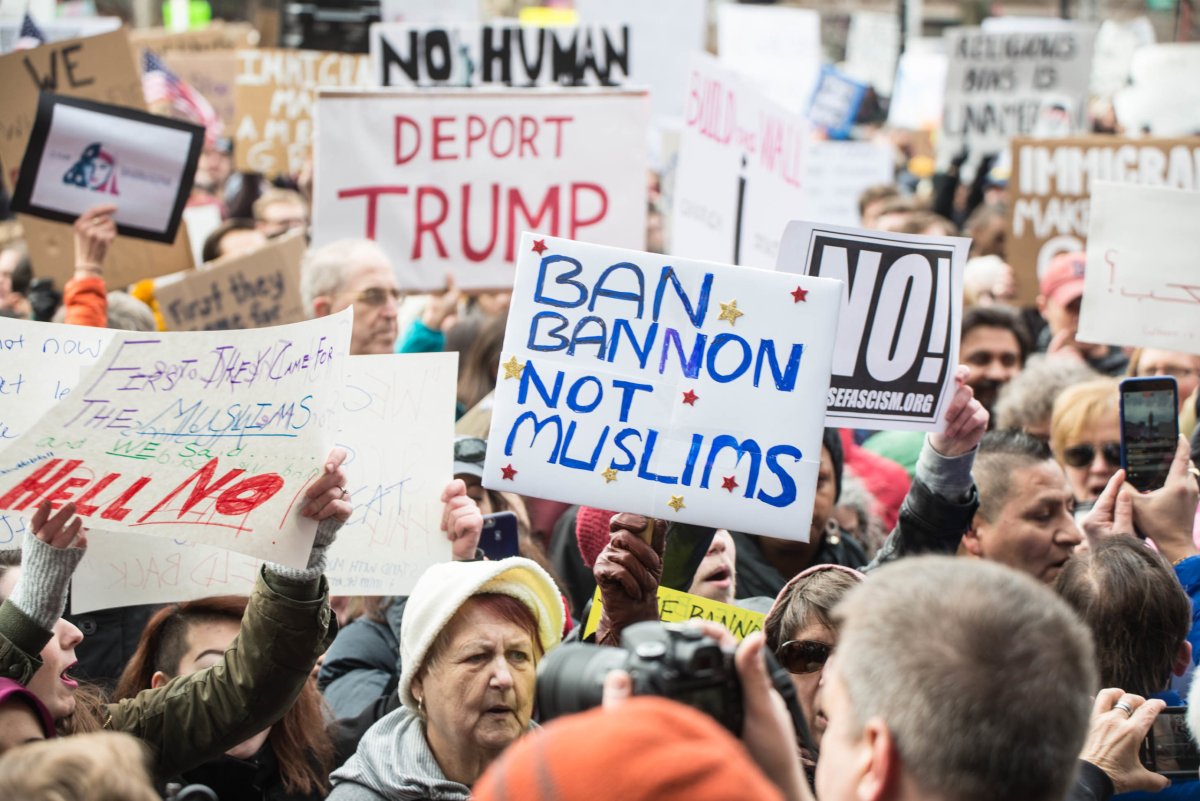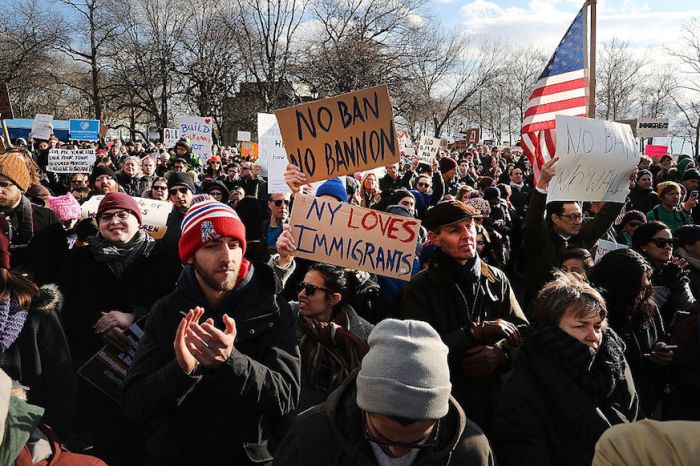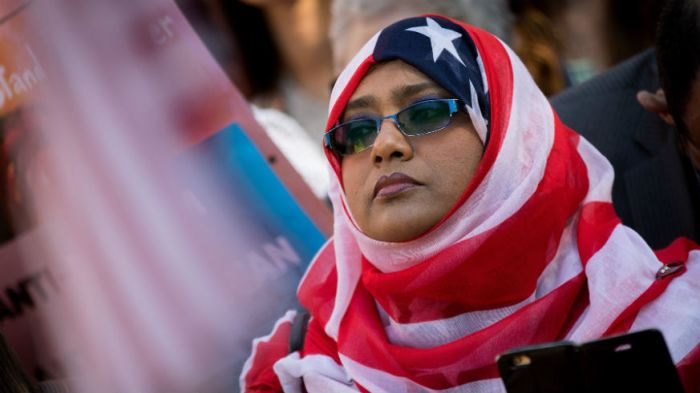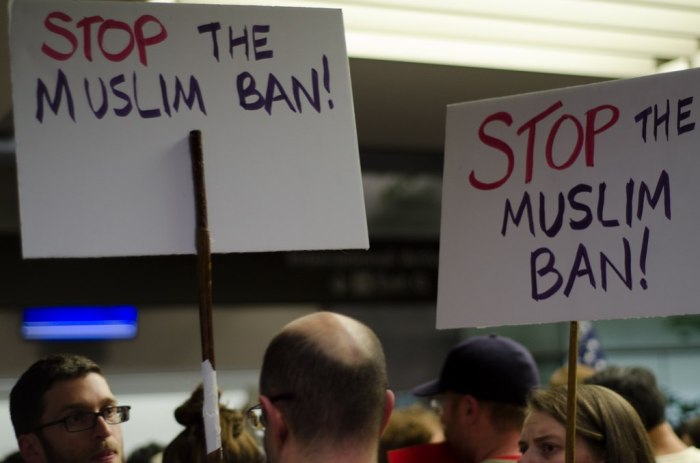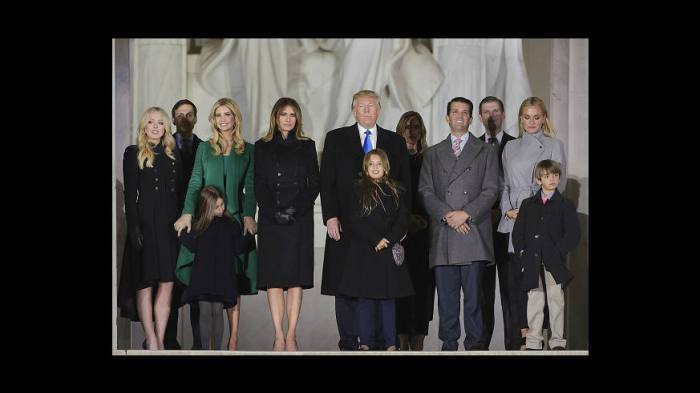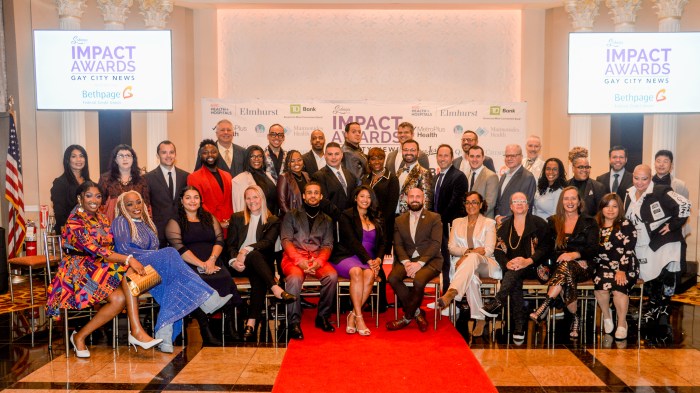The United States Supreme Court on Tuesday upheld President Donald Trump’s travel ban that targets several mostly-Muslim countries, prompting concern from experts about how this will harm the Muslim community as well as Massachusetts industries.
As a health and education hub, Massachusetts and the Muslim community connected to the commonwealth are certain to see the real-world impacts of the Muslim travel ban, said John Robbins, executive director of the Council on American-Islamic Relations Massachusetts.
“Obviously we join the rest of the American Muslim community in being deeply, deeply disappointed by this ruling, which is going to lead to continued hardship for countless Muslim families,” he said.
“Families who have been wanting to seek medical treatment, for example, are now obstructed from doing so,” he continued, “Who send their children to school at one of Massachusetts’s premier universities, now unable to do so. Muslim families who wish to visit the birth of a grandchild in one of Massachusetts’s great hospitals who are now unable to do so. These are the real world impacts for the Muslim community around this ban.”
The sense of disappointment with the ruling was echoed by several others throughout Massachusetts. On Twitter, Boston Mayor Marty Walsh said that the “discriminatory ban goes against our core American values.”
“Boston will never stop fighting for our immigrant communities,” he added, “regardless of country of origin or faith tradition. Hate will not divide us.”
I am deeply disappointed by today’s ruling. This discriminatory ban goes against our core American values. Boston will never stop fighting for our immigrant communities, regardless of country of origin or faith tradition. Hate will not divide us.
— Mayor Marty Walsh (@marty_walsh) June 26, 2018
Charity organization Oxfam America, which is headquartered in Boston, spoke out against the ruling in a statement.
“The Court’s decision today will only embolden those who seek to end our proud legacy as a welcoming nation,” the organization said. “By slamming the door on millions of people from Muslim-majority nations, the Trump Administration is sending a clear signal to the world that it no longer believes the fundamental tenet that all people are created equal.”
The American Civil Liberties Union compared Tuesday’s ruling to the 1944 Supreme Court decision that allowed the federal government to imprison Japanese Americans, calling both moves “shameful chapters of U.S. history.” The nonprofit urged Americans upset by the decision to reach out to their elected representatives.
Massachusetts Attorney General Maura Healey said in a statement that she disagreed with the Supreme Court’s decision, promising that her office will “continue to work with leaders in government and immigrant communities across Massachusetts to protect everyone’s rights and stand up to hate in all of its forms.”
In the meantime, Robbins encouraged residents here to show their support for the Muslim community.
“As much as this is a dark day within our country’s history this is also a time in which there’s an opportunity to shine a light on ignorance and bigotry,” he said. “Those who have a heart to heal can use this as an occasion to stand up for those being oppressed and facing discrimination, to say firmly that our values as Americans are based on welcoming those in need and opening doors to the wider world, not on sealing ourselves up.”

